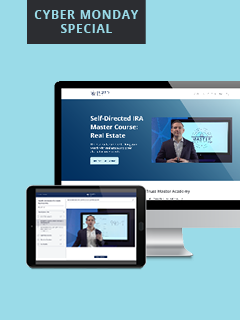


ACT NOW:
65% Off
All Education Courses
In observance of Thanksgiving, our offices will be closed November 28 – 29, 2024. We will resume regular business hours on Monday, December 2.
Clients can visit myEQUITY at any time to see status updates, submit new requests, and receive up-to-date information regarding accounts.
If you are a current Midland Trust client, please click here to log in to your account. Looking for account resources? Click here.
Investor Insights Blog|Know of Companies Looking for Investors? Here’s a Potential Source of Funding
Private Equity and Entity Investing

Have you ever considered investing in a startup or privately held company but thought this type of investing was only available to wealthy venture capitalists? Maybe you’re interested in diversifying beyond publicly traded stocks but weren’t sure if it was a possibility.
You may have access to private investments – and the funds to invest – and not even realize it.
It’s possible to use your retirement account to fund a wide variety of investment opportunities, including privately held entities and companies looking for investors.
Through what’s known as a self-directed IRA, it’s possible to diversify beyond public stocks, bonds, and mutual funds into nearly any investment opportunity. The realm of investment opportunities can include small businesses, private equity, investment platforms, real estate, and more.
Many investors do not realize the IRS only lists a few items that are not permitted in an IRA – mainly collectibles, including artwork, antiques, and alcoholic beverages (this can be found in IRS Publication 590).
Because the investments are in an IRA, there are tax benefits. Any profits are tax-deferred (or, in the case of the Roth IRA, tax-free). In addition, investments in IRAs are not subject to short-term or long-term capital gains taxes.
Before you try to tap into your current 401(k) or IRA, there’s one other important thing to know: to truly take advantage of this investment freedom and self-direct your funds, your retirement or other qualified account must be established through a custodian, such as Equity Trust, that’s equipped to handle this type of investment.
There are a few other rules as well, due to the fact that you’re investing in a tax-advantaged account.
Learn more: How to Invest in a Private Entity with an Equity Trust Account
Here’s a summary of different types of private-entity investments:
| Limited Partnership | A limited business organized by one or more individuals, called general partners, who manage the business and are liable for the debts of the business. Limited partners are investors in the business and are only liable up to the extent of their investment. An IRA may only make investments in an LP as a limited partner. |
| Limited Liability Company (LLC) | A business that is formed by members (which may include individuals, corporations, other LLCs, and foreign entities) who have limited liability for the entity’s debts and obligations. |
| Corporation (C-Corp) | A company owned by shareholders who elect a board of directors. The board of directors determines the direction of the company. |
Private entity investments with a self-directed IRA: real-life examples
Equity Trust clients have used their accounts to invest in a variety of private market opportunities. Here are a few examples of people who invested in companies looking for investors:
Once your account is open with a self-directed account custodian, there are a few IRS rules to be aware of when using your retirement account to invest in startups and other businesses.
Disqualified individuals
A disqualified individual is anyone up and down your family tree – parents, grandparents, children, and grandchildren. In addition, yourself, as the account holder, and any fiduciaries are considered prohibited. IRS rules state that these individuals cannot be a counter party to your investment.
Prohibited transactions
This is any transaction involving any of the disqualified individuals named above. Your IRA transactions are to be at “arm’s length” – the account is for the purpose of retirement, so any investments in the account should not benefit you personally.
You can find more information in IRS Publication 590.
Other rules related to private entities in an IRA:
Some important rules to remember about investing in an entity within a qualified account:
[Related: Private Entities in an IRA FAQs]
How to get started investing in private companies in an IRA
To set up a self-directed account, you’ll need to open an account at a self-directed IRA custodian. You can then fund your account by making a contribution or rolling over or transferring another retirement account.
It’s important to note that Equity Trust does not offer investment advice. It’s recommended you do your due diligence before making any investment decision.
Can my IRA invest in a newly formed entity that will invest in real estate?
What are the advantages of opening a self-directed IRA?
What investments can I make using a self-directed IRA?
You are leaving trustetc.com to enter the ETC Brokerage Services (Member FINRA/SIPC) website (etcbrokerage.com), the registered broker-dealer affiliate of Equity Trust Company. ETC Brokerage Services provides access to brokerage and investment products which ARE NOT FDIC insured. ETC Brokerage does not provide investment advice or recommendations as to any investment. All investments are selected and made solely by self-directed account owners.
Continue